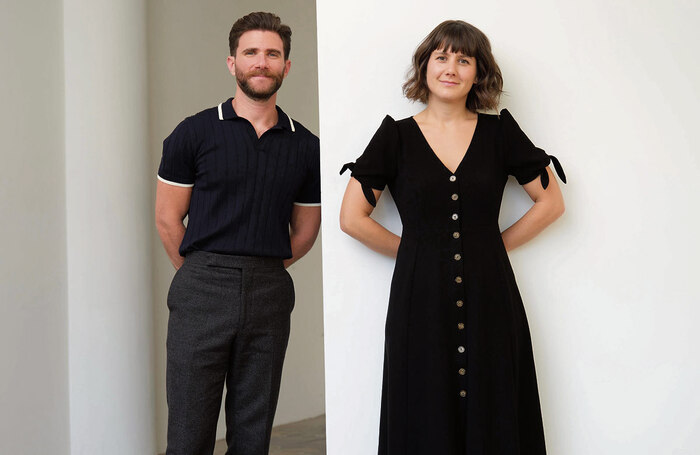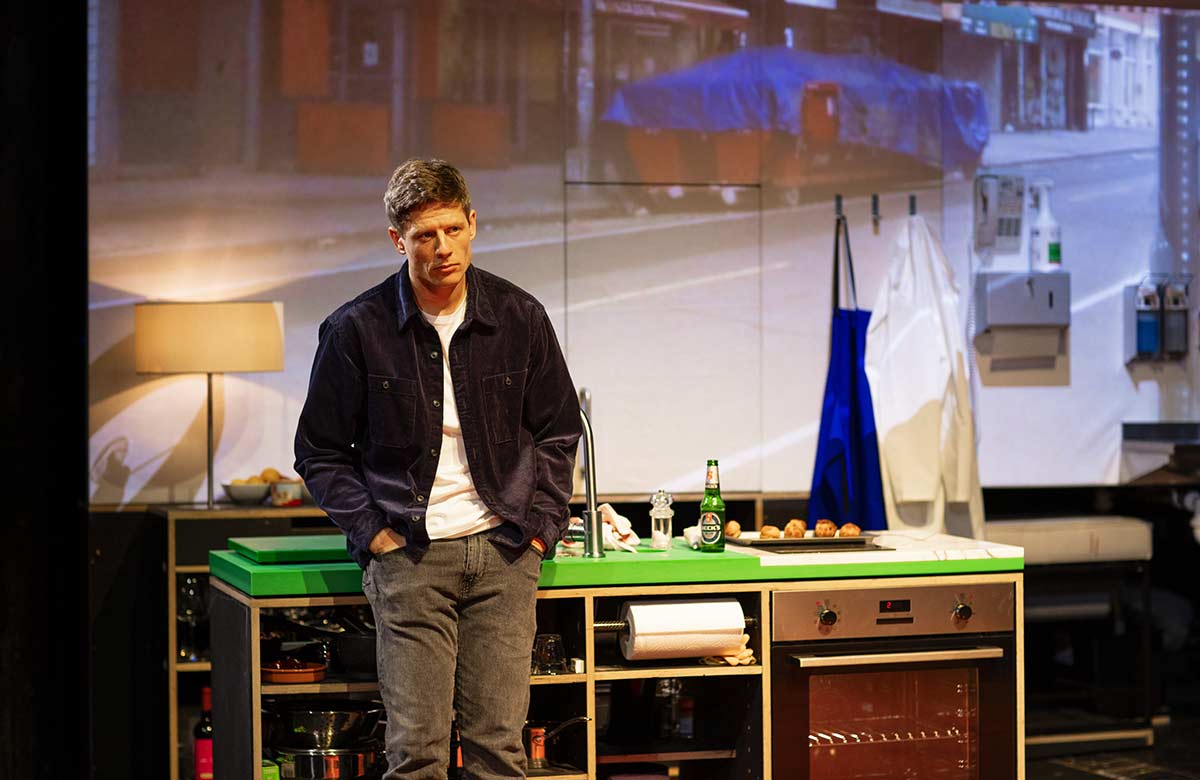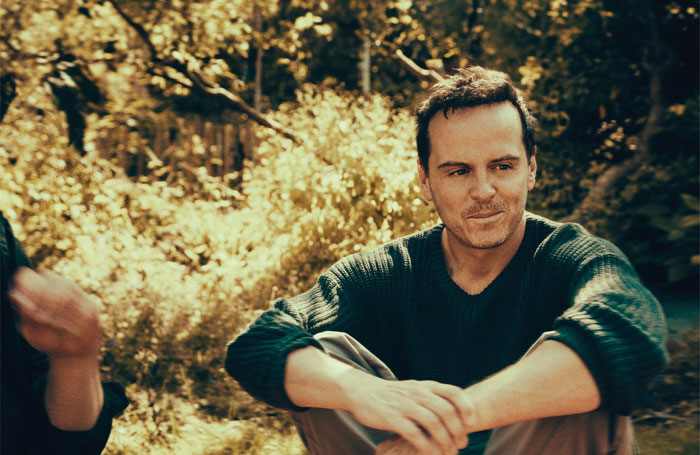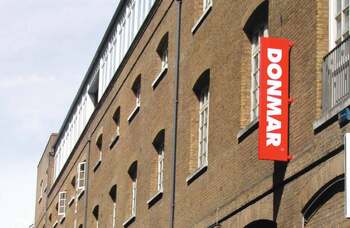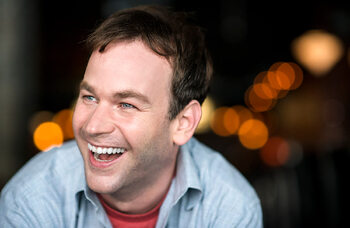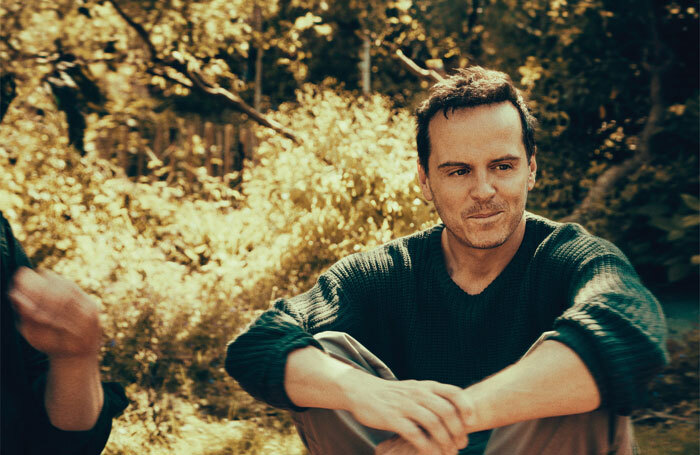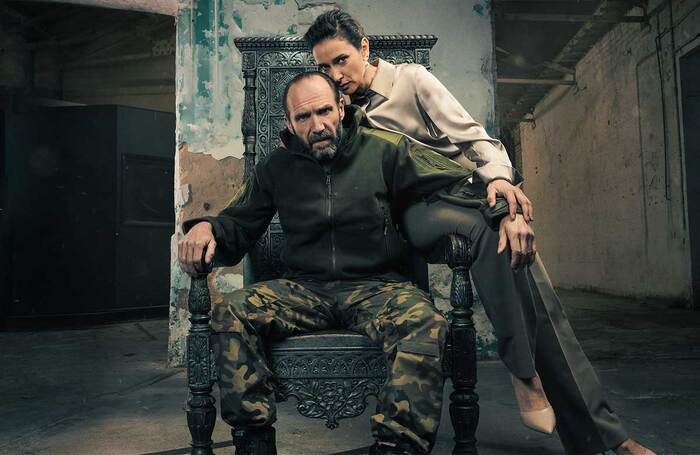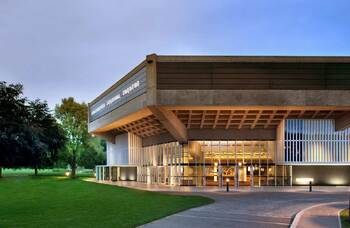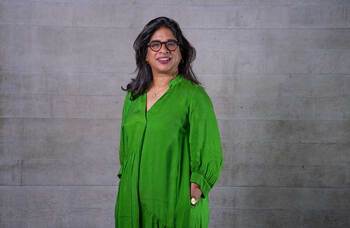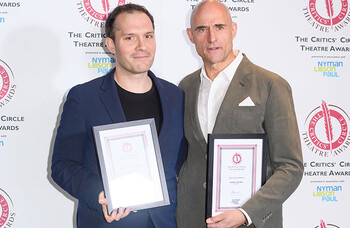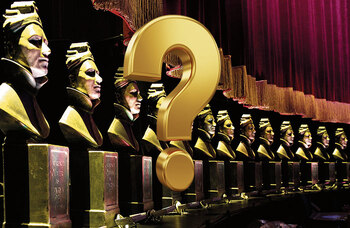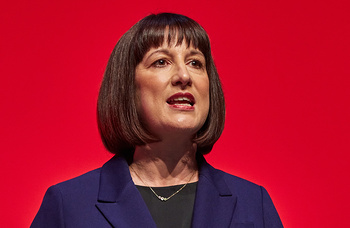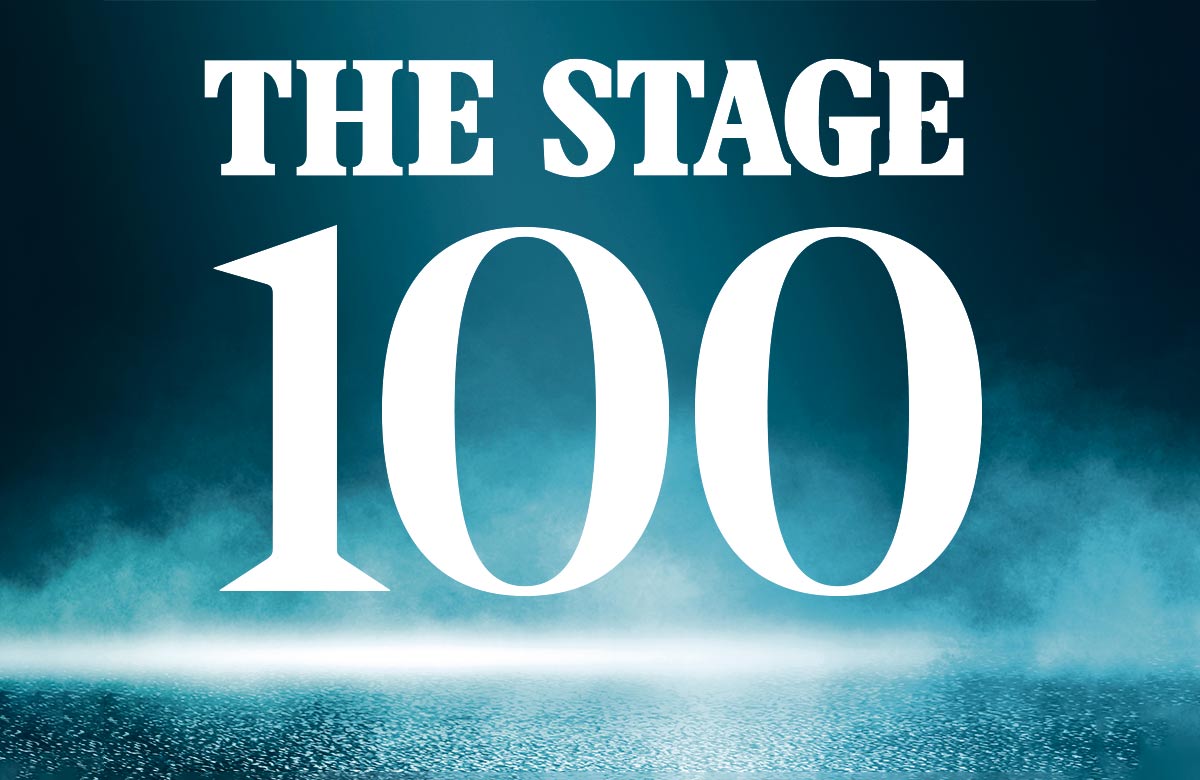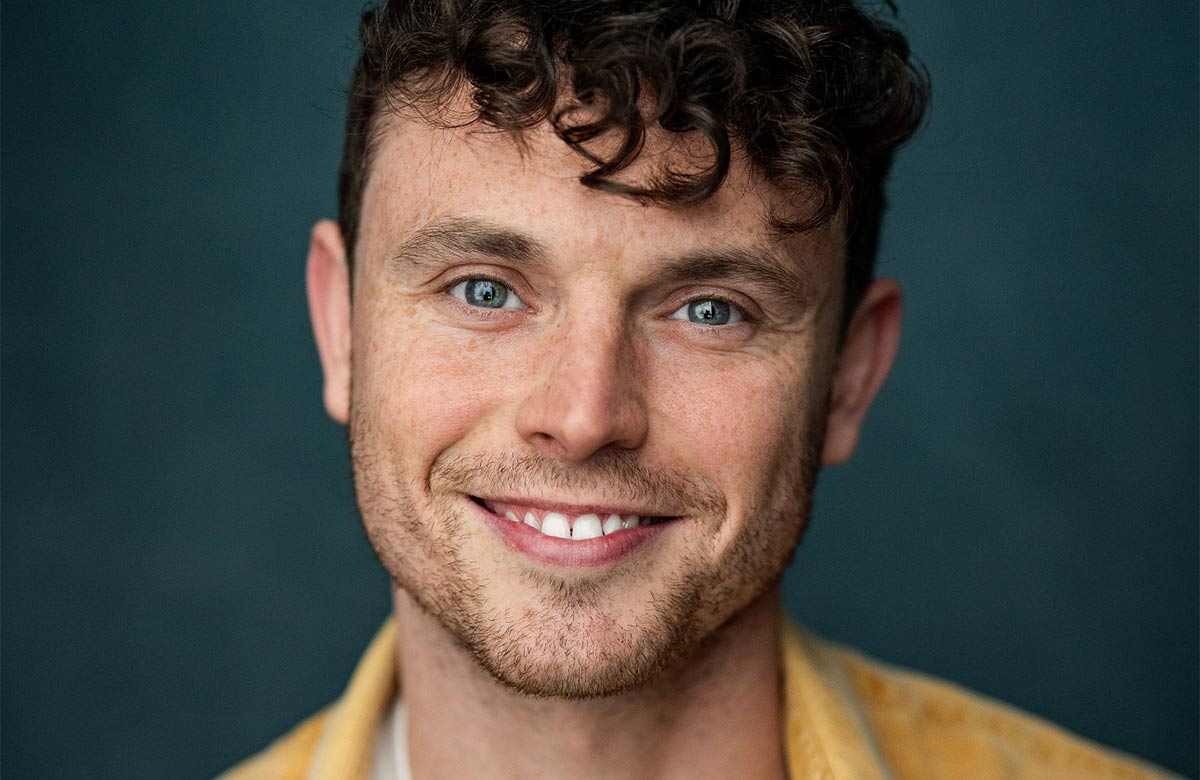Meet Wessex Grove, the producing duo making waves in the West End
In just three years of operating, production company Wessex Grove already has an impressive list of West End shows under its belt, including A Little Life, The Seagull and Constellations. The business’ co-founders Benjamin Lowy and Emily Vaughan-Barratt tell Kate Wyver why they started, how they are putting their teams first, and what is coming next
A successful West End show needs one of three things, says producer Emily Vaughan-Barratt. “You need a title that is popular in its own right,” she suggests, “you need a big actor, or you need something that has been tried and tested.” Judging by the success of Wessex Grove, the producing company she started with her friend and Tony award-winning producer Benjamin Lowy, this is sage advice.
Despite only being formed in 2020, Wessex Grove’s high-profile list of shows is impressive. Working between London and New York, this duo are the powerhouse behind Jamie Lloyd’s The Seagull, James Graham’s Best of Enemies and the 2021 revival of Nick Payne’s Constellations, which featured four rotating, and equally starry, casts. When we speak, behind Vaughan-Barratt sits the poster for Liz Kingsman’s One Woman Show, one of the productions their team are most proud of – they picked up the artful parody after rave reviews at Soho Theatre and launched it in the West End. It was them, too, who were finally able to get the English-language rights to A Little Life. They were laughed at when they first asked if it would be possible, but their polite persistence (and “naive belief that it might just work”, says Lowy) paid off. The adaptation of Hanya Yanagihara’s harrowing novel is about to be streamed to cinemas across the UK and in certain cinemas around Europe.
We speak just before the pair go to Edinburgh for the fringe. They’re partly going to see Mike Birbiglia’s one-man show The Old Man and the Pool – running at Edinburgh’s McEwan Hall ahead of its West End premiere, which they’re producing – and partly because they’re co-producers on Kathy and Stella Solve a Murder!, a musical about true-crime podcasters. Its lead producer, Francesca Moody of Fleabag fame, has an office next door to theirs. Lowy is propped up on his phone and Vaughan-Barratt is eating a sandwich in their office. Younger than most big-deal producers, they’re both warmly chatty and immediately friendly. The concern they have for doing things properly for their teams is palpable. “It felt like there might be some things we could do differently,” Vaughan-Barratt says, when they tell the story of how and why they began working together.
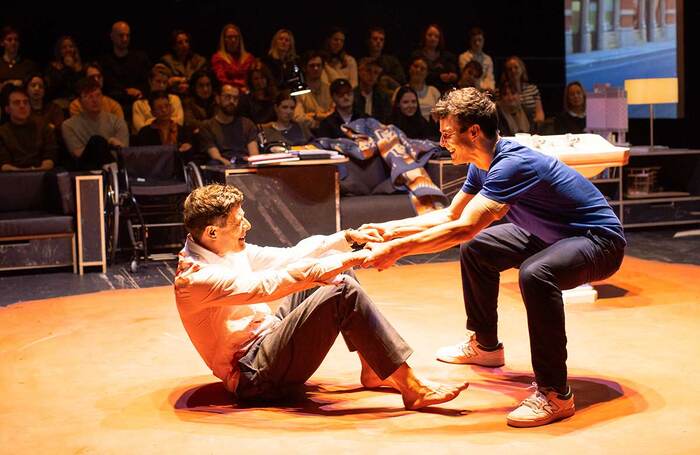
The name was Lowy’s idea. Wessex Grove is the road in Harold Pinter’s Betrayal where the characters have an affair, and what Vaughan-Barratt and Lowy embarked on together was essentially a professional affair, as they plotted for Vaughan-Barratt to leave her job in order for them to form a company together.
“It was a hot, horrible New York evening in August,” Vaughan-Barratt says, setting the scene. They were both working on a production of Betrayal on Broadway and enjoyed working together so much that they wondered if making a company together was feasible, or just a wild pipe-dream. At that point, she had been at Ambassador Theatre Group for seven years, and Lowy had been working as an independent producer. They went for it, setting up the company and almost immediately falling headfirst into a pandemic. He was locked down in his childhood bedroom in LA, while she was stuck in Camberwell in London. “We were a bit out of luck,” Lowy says. “We’d only just started the company and then we didn’t see each other for 15 months. But we thought we’d better just crack on and make it work.”
They’re fans of celebrating the good in their work; whenever they announce a new show, their whole team has a big breakfast together to celebrate. In fact, when they talk about the work they produce, taking care of the cast and crew is the first thing that comes up, and one that does so repeatedly. It was one of the aspects they wanted to prioritise when they formed Wessex Grove, of giving real, genuine support to the people they worked with to make their careers possible, enjoyable and sustainable.
Q&A
What was your first non-theatre job?
Lowy: I was a concierge at my local mall.
Vaughan-Barratt: Gap Kids.
What was your first professional theatre job?
L: An intern at my local theatre in Los Angeles called the Geffen Playhouse.
V-B: At Chichester Festival Theatre’s incredible young theatre, helping do the admin and running workshops.
Who or what was your biggest influence?
L: There are two other partnerships we aspire to: Wendy Orshan and her managing partner Jeff Wilson, who run 101 Productions, and John Johnson and Sue Wagner. We’re like three generations of duos.
V-B: And working for Howard [Panter] and Rosemary [Squire, who both headed up ATG] for a long time is an amazing example of a very successful partnership.
L: When the going gets tough, because it always does in theatre, it’s so nice and fun to be in the room with somebody that you love, that you respect, that you want to be in a room with. V-Bt: It also means you can take a holiday. Every now and then.
Do you have any theatrical superstitions or rituals?
L: I’m very much a believer in the ‘Scottish play’ curse. When I was in Sweeney Todd in high school, these kids kept saying “Macbeth, Macbeth” backstage, and then a pregnant teacher was ill during a performance, so I believe that.
V-B: I am a fan of traditions. We give commemorative mugs to everyone on their first day in tech.
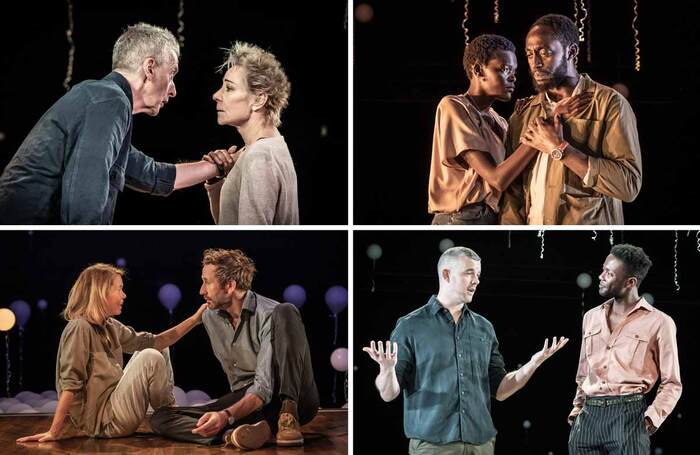
“What you’re asking actors to do on a nightly basis is come in, crack themselves open and give everything to you,” says Vaughan-Barratt, “then sew themselves up, go home and watch MasterChef. We wanted to work out how to support people, in every way, to make their best work.” A Little Life had an on-call therapist, a psychotherapist and a physio. They believe this level of care was not only critical to making sure that everyone got through the experience in one piece, but also contributed to the success of the show. “It makes people feel safe coming to work,” Vaughan Barratt says. “In 133 shows, not one of those actors missed a show.”
But the trust they built felt violated early on in the run. “At the second preview, a member of the public came in and took illicit pictures of James [Norton] naked on stage,” says Lowy, “despite us taking preventative measures. Not only did this individual break their terms as a ticket buyer, but they absolutely violated James’ privacy and his performance. As a producer, it was really a terrible thing for one of our actors to go through.” They still seem upset by the incident, for how it broke the trust of the room, for its impact on the performers and for the fact that the papers printed the pictures the next day.
Their attitude around the transparency of care translates into open conversations about money. “We obviously want to protect our investors, but our priority is being transparent with our finances so that everyone benefits,” Vaughan Barratt explains. “It’s hard to live and work in London. We make sure that we pay our stage teams and actors well, so that people can afford to do theatre, and that they feel safe and protected as they’re doing it. Perhaps, in the long run, that will be to our detriment financially, but I think it creates a collaborative space.”
‘Commercial doesn’t have to mean a star. It just means a lot of people want to see it’ – Benjamin Lowy, producer and founder of Wessex Grove
This outlook loops back to their name, too. Some producers name a company after themselves; Vaughan-Barratt and Lowy wanted to signal that this company is about everyone they work with, not just the two of them. “We try to get away from the question: ‘What will the industry think?’ ” Lowy says. “Everyone’s always concerned with that. We just have to make sure the shows succeed.” Their work is very much as a duo, rather than working individually, together. “A lot of producers like working alone and favour independent decision-making,” Vaughan-Barratt notes, “but we make all our decisions together.”
Producing is a game of risk, of trying to work out what audiences want. “People talk a lot about a show being too commercial or not commercial enough,” says Lowy. “But that word is silly. Emily taught me this and now I firmly believe it: commercial doesn’t have to mean a star. Commercial just means a lot of people want to see it.”
Nevertheless, a lot of their work so far has involved celebrity actors. Alongside Birbiglia’s The Old Man and the Pool, their upcoming season includes Ralph Fiennes and Indira Varma in a site-specific production of Macbeth, staged in warehouses across the UK and Washington DC, and Matt Smith in Ibsen’s An Enemy of the People, which will be preceded at the West End’s Duke of York’s Theatre by Andrew Scott performing alone in Simon Stephens’ one-man Vanya, which Wessex Grove commissioned during the pandemic. “A lot of the things we’ve done have stars in,” Vaughan-Barratt concedes. “It’s a quick route to lower risk. But we’re also interested in taking risks.”
Their theatrical backgrounds vary: Vaughan-Barratt was taken to see plays at her local Polka Theatre in Wimbledon, while Lowy grew up going to see LA touring musicals with his mum. “He’s a theatre kid,” Vaughan-Barratt laughs. “He can talk very articulately about the orchestra size on Phantom in a way I cannot.” The Phantom of the Opera was the first play Lowy fell in love with; Vaughan-Barratt, she admits, is yet to see it.
What they produce today leans closer to the type of theatre Vaughan-Barratt loved growing up, although they’re starting to dip their toes into musicals, too, with some currently in development; they’re also a partner on Rebecca Frecknall’s Cabaret in the West End, as they were for her production of A Streetcar Named Desire.
“We’re trying to work on some shows that can run for longer and are not dictated around one person and one short run,” Vaughan-Barratt says, pointing to shows such as Peppa Pig’s Fun Day Out, which can run endlessly with rotating casts. “That’s the way to sustain a business,” Lowy adds. “The amount of work of putting up a show is the same no matter how long it runs, so you want it to run longer to be more lucrative.”
The broadness of scope is partly what attracts them both to producing. “Being financially literate is key,” Vaughan-Barratt says, “but you also have to be creatively literate enough to sit in a room with Andrew Scott and Simon Stephens and give your notes immediately.” Lowy agrees: “There’s a new challenge every day,” he says. “You never know what the day will bring. It defies expectation. That’s exciting.” Getting to spend your days with leading lights in theatre helps, too. “You’re working with your heroes,” he beams. “That’s the crazy cool part. These are people you’ve idolised, and now you get to work with them.”
‘We make sure that we pay our stage teams and actors well, so that they can afford to do theatre and they feel safe and protected as they’re doing it’ – Emily Vaughan-Barratt
Their upcoming season is an incredibly busy one for Wessex Grove’s team of eight, but the pair are already thinking ahead. “We generally plan eight or nine months ahead,” Vaughan-Barratt says. Next year will be an unusual one: because of the writers and actors strike, many actors are refraining from agreeing to anything in the second half of 2024 in case they need to return to the TV and film roles that are on hold. “Because it’s all unknown,” Lowy says, “a lot of next year is off-limits for a lot of people.” But they deal with unknowns all the time. “It’s nice to be so nimble,” says Lowy on the benefits of having a small team, “to be able to make things work quickly and move as the industry moves.”
Theirs seems an extraordinary, chaotic, whirlwind of a job – one made infinitely better by doing it with your friend. “If you’re trying to work in the industry, find like-minded people,” Lowy advises, “because then it comes easily.” While they develop and commission new work, expand into musicals and attempt to find their Peppa, they continue to work with other organisations and develop what they do. “We don’t want to stop being present,” says Vaughan-Barratt. “When. we’ve collaborated with other producers, they’ve taught us so much. We still have so much to learn."
CV Emily Vaughan-Barratt and Benjamin lowy
Born: Vaughan-Barratt: 1988; Lowy: 1992
Landmark productions with Wessex Grove:
• Constellations, Vaudeville Theatre, London (2021)
• The Seagull, Harold Pinter Theatre, London (2022)
• One Woman Show, Ambassadors Theatre, London (2022), Greenwich House Theater, New York (2023)
• A Little Life, Harold Pinter Theatre, London (2023)
• Best of Enemies, Noël Coward Theatre, London (2023)
Vanya is at Duke of York’s Theatre, London, from September 15 to October 21. Visit: dukeofyorks.com
Opinion
Recommended for you
Opinion
Recommended for you
Most Read
Across The Stage this weekYour subscription helps ensure our journalism can continue
Invest in The Stage today with a subscription starting at just £7.99
